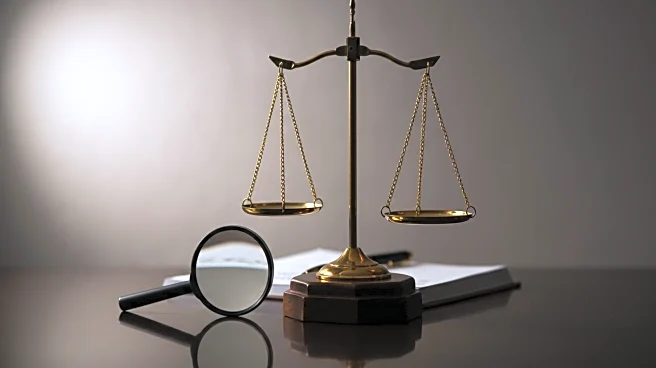What's Happening?
Pomerantz LLP has announced the filing of a class action lawsuit against Sable Offshore Corp., alleging securities fraud and other unlawful business practices by the company and certain officers. Investors who purchased Sable securities during the specified class period are encouraged to contact the firm to potentially become Lead Plaintiff. The lawsuit follows a series of events that began with Sable's announcement of resumed oil production from its Las Flores pipelines, which was subsequently challenged by the California State Land Commission for mischaracterizing activities. This led to a preliminary injunction from the California Coastal Commission and a temporary restraining order from the Santa Barbara County Superior Court, impacting Sable's stock price significantly.
Why It's Important?
The lawsuit against Sable Offshore Corp. highlights significant concerns about corporate governance and transparency in the oil industry. The allegations of securities fraud could have substantial implications for investors and the company's future operations. If proven, these claims may lead to financial penalties and stricter regulatory scrutiny, affecting Sable's market position and investor confidence. The case underscores the importance of accurate corporate disclosures and the potential consequences of misleading information, which can lead to legal challenges and financial losses for stakeholders.
What's Next?
Investors have until September 26, 2025, to seek appointment as Lead Plaintiff in the class action. The legal proceedings will likely involve detailed examination of Sable's business practices and disclosures. The outcome could influence regulatory policies and investor relations within the oil sector. Stakeholders, including regulatory bodies and environmental groups, may closely monitor the case, potentially leading to broader discussions on corporate accountability and environmental compliance in the industry.
Beyond the Headlines
The lawsuit against Sable Offshore Corp. may prompt broader discussions on ethical business practices and the role of corporate governance in maintaining investor trust. It could also lead to increased scrutiny of environmental compliance in the oil industry, particularly concerning operations in sensitive coastal areas. The case may serve as a precedent for future legal actions against companies accused of misleading investors, emphasizing the need for transparency and accountability.








